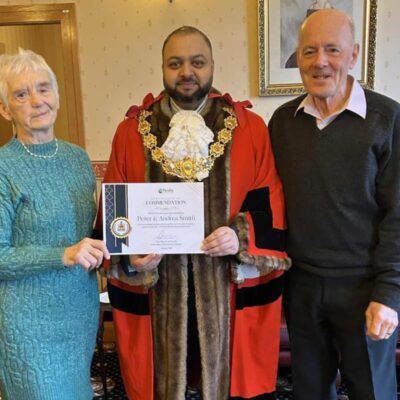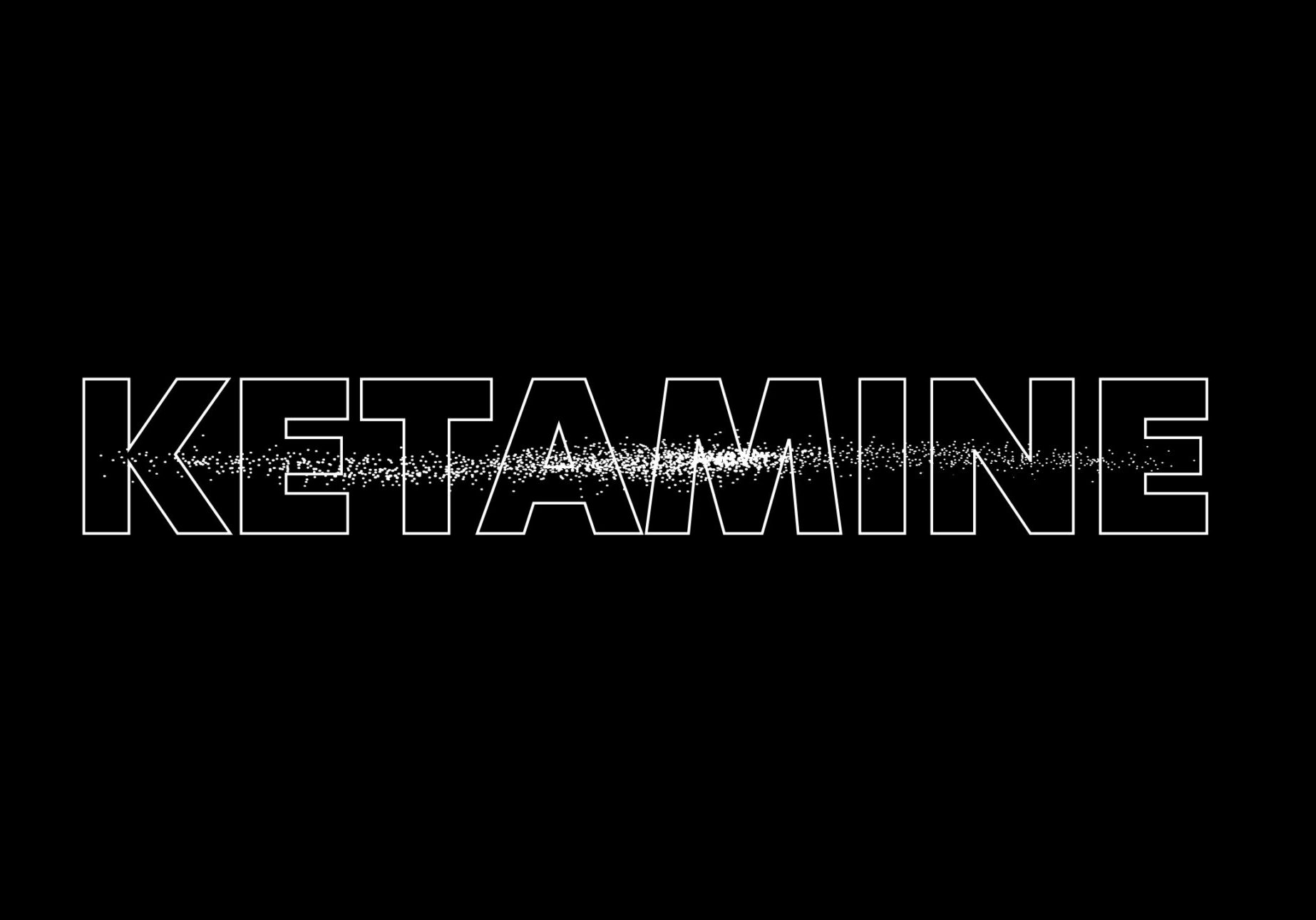
KETAMINE
by Karen Shaw
What's Going Up Our Kid's Noses, Right Under Our Noses?
I don’t want to write this. Who wants to talk about rotting bladders, incontinence, stomach cramps (to name a few)? I don’t. But unfortunately, needs must.
You may not have heard of ketamine before unless you’re a vet, as it’s often used as a horse tranquiliser – and guess what? Our kids are taking it for kicks!
Times have certainly changed from the wreckless teenage years of a cheeky shandy and going thirds on a fag; this is different.
Ketamine is another level, and if you don’t know about it, you need to.
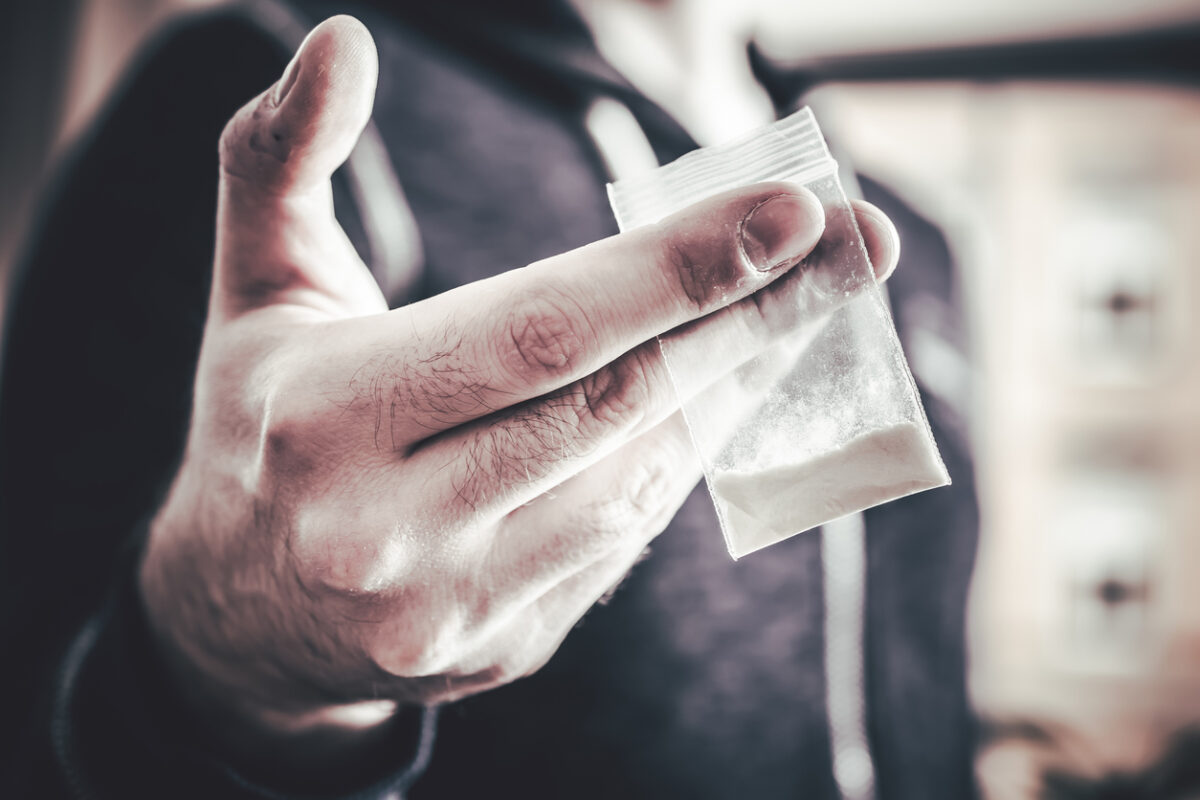
A powerful anaesthetic, it is a white/brownish powder usually snorted in small doses called ‘bumps’, injected, swallowed as a pill, or ‘bombed’ by wrapping the powder in cigarette paper. Snorting takes effect in about 15 minutes, lasting 30 minutes to an hour. It costs around £20 per gram and can be ordered on Snapchat, Instagram and Telegram, with delivery available to your door.
A powerful anaesthetic that induces a dream-like state and detachment from reality, ketamine often causing nausea and confusion, distorting time and space perceptions. High doses can lead to a ‘K-hole’, resulting in complete disconnection from the body, and then there are ‘K-cramps’ – severe stomach pains.
It can impair memory and trigger anxiety, depression, and panic attacks. Along with damaging the bladder, kidneys, and urinary tract, some young users require urostomy bags. I could go on, but it makes for grim reading.
Pendle and Burnley were recently featured in a Radio 4 documentary titled ‘Generation K: Kids on Ketamine‘. The documentary highlighted the alarming use and effects of horse tranquilliser, commonly known as ketamine, among young people in the area. Featured heavily in the programme was Fr Alex Frost, the Vicar of St Matthew the Apostle in Burnley, a trailblazing activist in the fight against ketamine. “I’m not an academic priest; I’m a hands-on doer priest,” he grins as he passes me a cup of tea, “and that documentary was so powerful.”
It was October last year when Fr Frost first became aware of the drug. What began as a conversation with a mum at his church propelled him onto the ketamine campaign trail. “I just asked how she was, and she ended up in tears, replying, ‘My son is 15, and he’s using ketamine, he’s dealing ketamine, and he’s beating me up. He’s coming home in designer clothes and trainers. He doesn’t have a job, and I’m not giving him any money. I know where it’s coming from.’”
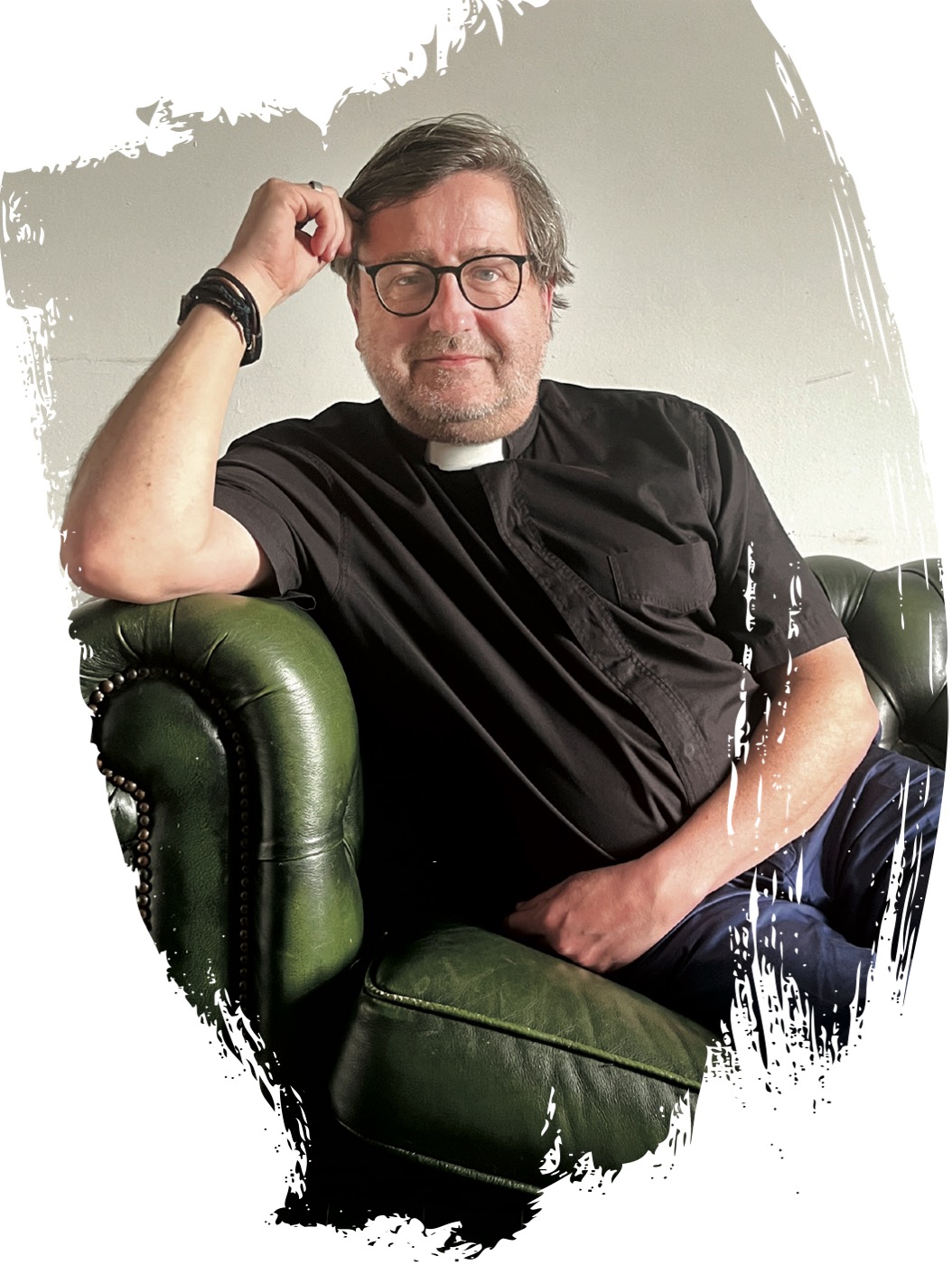
Fr. Alex Frost
The mum was desperate for help, in fear for her safety, while facing the stark reality of her child’s addiction – incontinence, sleeplessness, sweats and stomach cramps. All the signs were there.
With minimal help available for ketamine users under the age of 18, she had nowhere to turn.
In a bid to help, Fr Frost contacted social services, “I asked what the threshold is for a child to be appointed a social worker after explaining that this kid’s 15, he’s dealing drugs, he’s receiving drugs and being violent, plus, he’s probably being exploited!”
“I used to believe that there was nothing else that could shock me, but ketamine has been that thing that’s taken me by surprise.”
The truth was that nothing existed. There was no safety net or rehabilitation centre, and no immediate help was available.
“I knew about heroin and all the other drugs. But not ketamine,” says Fr Frost.
The scale of the problem was revealed following his social media post, ‘Have you been affected
by ketamine?’, which was astonishing, as he encountered a deluge of people keen to share their experiences.
That’s when he started to grasp the magnitude of the problem. From a 12-year-old girl with aspirations of becoming Burnley’s top ketamine dealer to a mother who was so overwhelmed that she told the police, “I don’t want her, I can’t manage her,” when refusing to take her daughter home—all profoundly tragic stories.
Fr Frost says, “If you’re under 18, detox or rehab programmes aren’t available. The only option is talking therapies. Therefore, if you get an appointment with a GP, you’ll receive a leaflet meant to discuss with the child, informing them about the dangers. Six months later, you might have a 45-minute session with a counsellor.”
Ironically, children as young as 12 can access and use ketamine. Yet, there are no available rehabilitation services until they turn 18, and by then, well, it could be too late.
“I’m in a really privileged position as a priest because if I were a politician, I could be accused of speaking for a particular agenda,” says Fr Frost. “I want to speak for the parents who have been absolutely decimated by their kids using it.”
I know of an incident where a drug dealer was arrested in the morning for selling ketamine. He was released at dinner, and then he was back out dealing it! That’s why it needs to be reclassified.”
With appearances on Radio 4 and Times Radio, to name a few, Fr. Frost is promoting his campaign, ‘Kick Out Ket,’ which aims to educate children and their parents about the risks associated with ketamine.
After discussing ketamine on ITV’s Good Morning Britain, he sat alongside Tracy Marelli, whose 20-year-old daughter, Sophie, tragically passed away in her bed due to health issues linked to the drug. Tracy is a strong advocate and motivational campaigner working to raise awareness about the dangers of ketamine misuse and is calling on ministers to reclassify the drug from a Class B to a Class A substance.
The recent death of James Lee Williams, also known as ‘The Vivienne’, a drag artist, has further heightened awareness of ketamine’s dangers. “The fact that it’s a high-profile person brings this issue to the forefront. His sister, Chanel, is pushing for the drug to be reclassified as a Class A too,” says Fr Frost.

Fr Frost feels that ketamine has been a completely taboo subject surrounded by denial for too long and believes that all services need to join the dots and work together more collaboratively. However, there is still a long way to go.
“The politicians and police seem to be pushing back on the reclassification, saying that it would stop young people from coming forward requesting help. I think it’s a load of crap to be perfectly honest with you,” says Fr Alex. “It’s a Class B drug currently. Those at the top say it could carry a 14-year prison sentence. However, I’m not convinced. I know of an incident where a drug dealer was arrested in the morning for selling ketamine. He was released at dinner, and then he was back out dealing it! That’s why it needs to be reclassified.”
“I believe there’s a level of – ‘if I arrest somebody in possession of ketamine or a Class A substance, how many brownie points am I going to get?’”
He goes on to say, “Then, you get the education that goes alongside it. Education plays a vital role in the fight against ketamine. We need more information about ketamine and to tell children about its dangers; it needs to happen.
“I go into primary schools, and what really gets me is I see these little children with all the potential and so much promise. But you also know the roadmap. Many schools also don’t want to admit they have a drug problem for fear it won’t reflect well on the school. Some kids have been taken out of school and have never been made to go back. They’re now living a life of drugs and crime, and will likely end up in prison.”
“I’ve seen pictures of a lad with his eyes bulging and bloodshot because he’s trying to wee, and he can’t,”
However, there’s positive news: His ket campaigning has led to a request that he produce a video about ketamine that will be shown to all head teachers of Church of England primary and secondary schools in Lancashire.
“I’ve got all the anecdotes, whether it’s from a 13-year-old girl to a 26-year-old man, and I’ve listened to real-life stories about death. I used to believe that there was nothing else that could shock me, but ketamine has been that thing that’s taken me by surprise.”
From tales of total bladder reconstructions in children as young as 12 to parents considering remortgaging their homes to support their ketamine-addicted son. Ketamine has shown Fr Frost the sordid and destructive underbelly of humanity.
“I’ve seen pictures of a lad with his eyes bulging and bloodshot because he’s trying to wee, and he can’t,” he grimaces. “The ketamine in his system crystallises the urine. And when he does wee, it comes out like a shot, like a hard, blood bullet. And this is what’s causing the pain.
“And so, ketamine then becomes, rather than the buzz, the antidote to the pain it has caused. And that’s precisely what’s going on. It treats you, but then it creates the problem and then treats you with it again.”
Read Fr Alex Frost’s moving account of the life of an urban parish priest, which highlights many issues of social injustice.

Our Daily Bread: From Argos to the Altar – a Priest’s Story. £9.99 harpercollins.co.uk
DANIEL – Currently in rehab at Elisha House
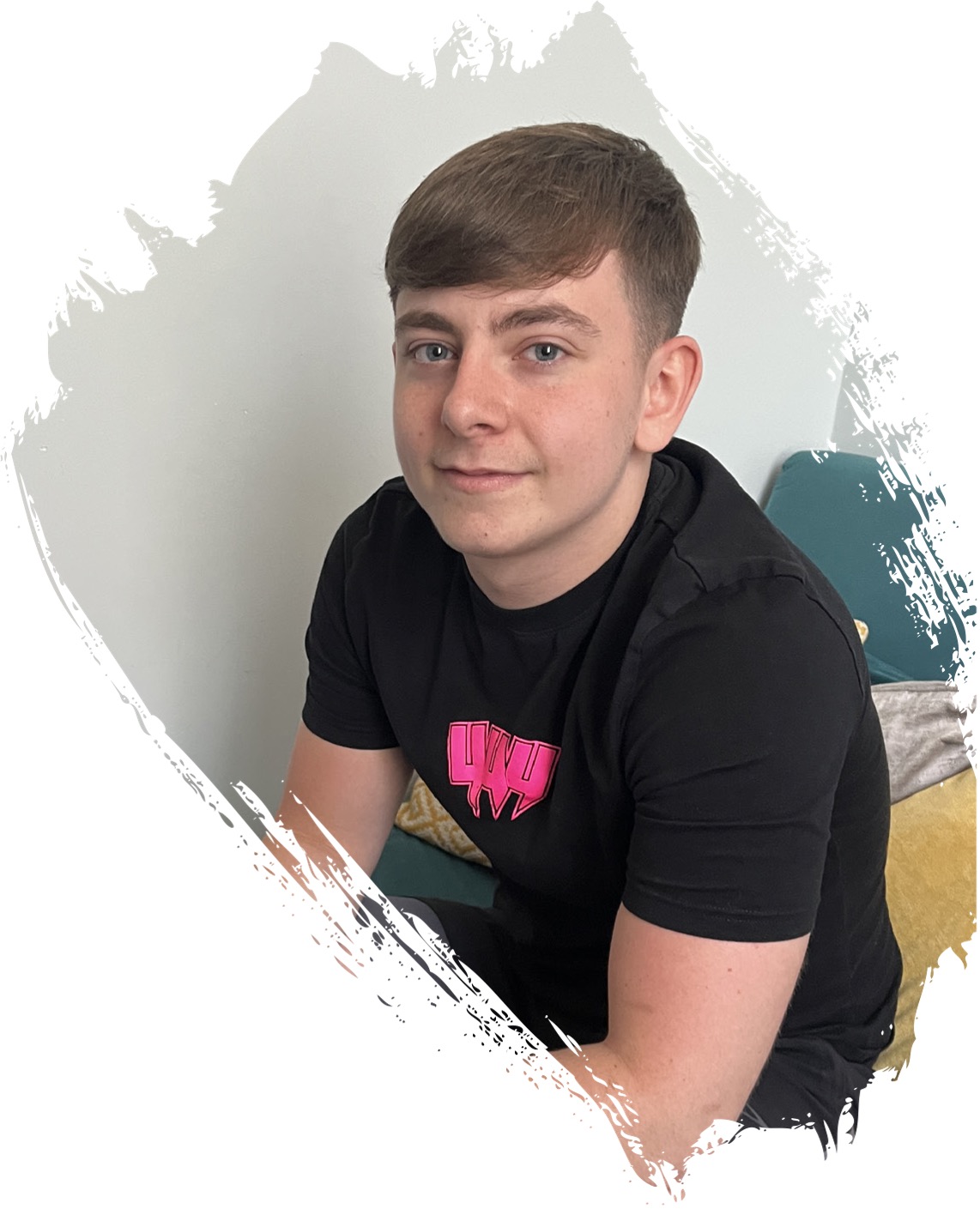
Daniel Davis
“I was in before for two weeks, but I got kicked out,” says Daniel Davis, 19, from Warrington, currently on a rehabilitation programme for his ketamine addiction at Elisha House in Colne. Kicked out because, after two days in rehab, he swapped his PlayStation 5 for four grams of ketamine.
This time around, he’s managed five weeks; “the first time, I just wanted to stay at home, but I’ve come back,” he says. “It feels different, and everyone’s said it in here – you can see the difference in me.”
“I’ve never felt like I had anything about me,” says Daniel.
It’s heartbreaking—simply heartbreaking. How can a bright, charismatic young man with the world at his feet even consider that?
“I made my mum physically ill. She’d try to eat, and she’d vomit and struggle to sleep at night.”
And so, as Daniel sits in the chair, all ‘bright-eyed and bushy-tailed’, it’s hard to imagine him in the throes of addiction. But that would have been a different story a couple of months ago.
“When I first tried it, I was with my best friend. We were at his house, and then one of our mates came from school and turned up with a bag of white powder. My best mate was like, ‘If you do it, I’ll do it’. So, we did. In year nine, you could get two grams for £30!
“I thought playing football was better on ket. I thought swimming would be better on ket. I thought playing on the PlayStation would be better on ket. Everything I did seemed better on ket.”
It was when his best mate committed suicide that he started to use daily, and then couldn’t get out of the habit.
“Ketamine made me push everyone away. I was getting kicked out of house to house. I got kicked out of my mum’s and went to my dad’s. My dad was staying at his girlfriend’s house, and her five-year-old granddaughter lived there too. Social services came round to check up on her on random visits. My dad told me that I could not use it there. But that didn’t stop me. I carried on. So, I got kicked out of there. Then back to my mum’s. Messed up again. Used there. Got kicked out.”
“Whenever I went out with my mates, I’d have to have some, but they’d end up having to look after me, and so they stopped asking me out.”
His whole demeanour changes when he speaks about his family. You can see the overwhelming regret wash over him, along with the gnawing disappointment in himself. It’s at this point he wells up. “I made my mum physically ill. She’d try to eat, and she’d vomit and struggle to sleep at night.”
“I used to sniff it in my room in secret, because at that point all my mates had stopped doing it. I’d lie in bed, and I’d feel like I was sinking into the bed and going into another world. I began to be known as the ‘Kethead’ in the group.”
Daniel fell into a self-fulfilling prophecy trap and acted in accordance with how he was perceived.
“Even when I was trying to stop sniffing it, I’d still get called ‘Kethead’, and that just made me think, you know what, I’ll show you, and I’d carry on sniffing!”
His life was spiralling out of control, and he began using more and more frequently as the addiction started to take hold.
When Daniel went out with friends, he often ordered a few grams of the white stuff. “Whenever I went out with my mates, I’d have to have some, but they’d end up having to look after me, and so they stopped asking me out.”
Daniel began using at work, until one day he began suffering from severe body pains and was taken to the hospital.
Whether on the street or social media, we’ve all seen people walking in a zombie-like fashion, dosed up on ketamine, reminiscent of a scene from Night of the Living Dead. What is the appeal? So, I was curious to discover what it felt like from a user’s perspective.
“It’s like having a drink. It can take up to ten minutes, and it hits you. You can feel wavy, floaty and slow, but you’re not aware of how you look from an outsider’s point of view – you feel like you’re moving normally.”
What advice would you give to parents who suspect or think their kid is using ketamine?
“I’d say be patient, because everyone around me tried for a while, and it’s only because they didn’t give up on me. I still didn’t believe I was an addict. I was doing about five grams a day. It’s really cheap.”
Despite securing an electrical apprenticeship, Daniel began using at work, until one day he began suffering from severe body pains and was taken to the hospital.
While there, he saw people “pissing blood,” yet despite being in hospital in pain, he thought it would never get that bad. “I thought I was invincible. I thought I was different. You think it won’t happen to you, but it will.”
I see a bright, confident, and charismatic young man with a spark in his eyes, fire in his belly, and a fierce determination to succeed.
And his plans for the future?
“Just to be normal,” he answers. “To get a good job, settle down, and gain all that trust back.
Mum of Two

Mum of two, from Colne, who doesn’t wish to be identified, talks to Colne Life about her horror on discovering her 16-year-old son was addicted to ketamine.
“I didn’t know what to do. Many parents don’t know what to do, and it’s really difficult. At the time, I didn’t realise how horrible ketamine was or what the consequences were. So, in a way, I was burying my head in the sand,” says the mum of two. “Hindsight, it’s a wonderful thing.”
It was just over a year ago when she happened to walk into her son’s bedroom and caught him taking ketamine.
“I found him with white powder on his nose; I began filming him in an attempt to show the state he was in, while on the drug. Even when he was back in the ‘land of the living’, the videos had little or no impact on him. He just carried on taking. I’ve still got the videos. I don’t know why.
“In the end, he sorted himself out, because when it comes down to it, only he could do it.”
“Initially, I just put the change in his attitude down to being a typical teenager. Aren’t all teenagers tired and grumpy? It’s what they do! At times, I couldn’t even bear to look at him.”
After months of hell, lost opportunities, family upset, and arguments, her son has finally managed to turn his life around. “He kicked the ket himself after hitting rock bottom,” she sighs.
“In the end, he sorted himself out, because when it comes down to it, only he could do it. He had to want to do it, and that’s a real battle!”
However, she’s not convinced that the ketamine hasn’t left him with a permanent reminder.
“I’ve noticed that my son now tends to slur his words. I think that’s the long-term effect it’s had on him.
“A while ago, he was going to see the doctor. But he wouldn’t tell me why. When he goes to the bathroom, I can hear that his wee isn’t a constant flow, and he now has a bath every morning, which, to me, may ease his cramps. Ket doesn’t discriminate.
SUPPORT
WeAreWithYou offers free and confidential support to adults and young people.
Inspire East Lancashireoffers a wide range of support for anyone worried about their own or somebody else’s substance and alcohol use.
Frank: a confidential service offering information, advice or support about drugs. 0300 123 6600
ColneLife June/July/Aug 25


